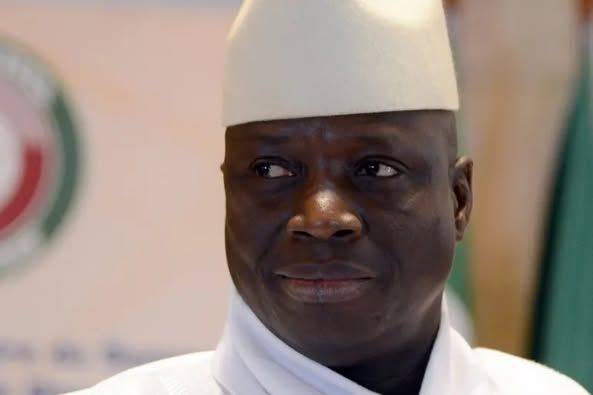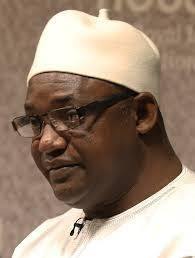
Part VII
Alagi Yorro Jallow
Fatoumatta: February 18 is a momentous day for all Gambians—a day of joy and celebration. It marks 60 years since we freed ourselves from the chains of colonialism, embarking on a bold journey toward nationhood and greatness. Regardless of the challenges we may face, we must honor this historic day. Let us take a moment to reflect on the abundant gifts that God has bestowed upon us. Our Creator has blessed us with a remarkable nation—the Gambia, affectionately known as the “Smiling Coast of Africa.” We are endowed with rich arable land, valuable human resources, plentiful water, diverse flora and fauna, gas reserves, a stunning coastline, and abundant minerals. We possess every essential ingredient to become a great nation. Yet, our true potential remains untapped, largely due to our struggle to harness unity of purpose. If we could embrace this unity, we could achieve a more orderly political evolution, greater integration, and sustained economic progress. Countries with far fewer resources have made astounding strides through coherence and a common vision. Despite the difficulties, our ability to remain united is an achievement we should celebrate and build upon as we work toward strengthening our emerging democracy.
Throughout the years, our political landscape has undergone a remarkable transformation, transitioning from a military regime to a quasi-democratic system over more than two decades. Yet, we find ourselves grappling with a significant democratic decline, marked by restricted leadership and an outdated constitution that fails to embody the true aspirations of the Gambian people. For the first time in our history, we have not successfully achieved a peaceful transfer of power. Despite this setback, we have elected a third democratically chosen president, underscoring a critical democratic deficit. A coalition of opposition parties successfully dismantled a twenty-two-year-long entrenched government through a free and fair election. This victory not only reflects the resilience of our democratic values but also serves as a powerful affirmation of the Gambian people’s unwavering commitment to a brighter future.
As we commemorate The Gambia’s 60th anniversary of independence, we draw inspiration from nations like the United States, where Independence Day—known as the Fourth of July—has become a cherished celebration for nearly 248 years, filled with feasts, fireworks, concerts, and family reunions. We, too, used to look forward to the vibrant celebrations of February 18. As schoolchildren, we eagerly practiced marching and vied to represent our schools at the central Independence anniversary event. It was a day that embodied the freedom and unity of our nation, a poignant reminder of the visionary leaders who fought valiantly to reclaim our collective destiny from foreign oppressors. Let us come together to honor our past, embrace our present, and unite for a brighter future for The Gambia

Fatoumatta: February 18, once a momentous occasion, has tragically lost its significance. The reign of Yahya Jammeh has diminished its beauty and stripped it of its meaning. The only event the government used to host in honor of this day, the Guard of Honor, has become a privilege reserved for the Statehouse and dictated by the whims of its current occupant. Today, participation in the celebrations is exclusive to the ruling elite. This is the new Gambia. What has happened to our nation? We struggle to grasp the sanctity and importance of anything. Values shift under our feet, and we redefine beauty to our own detriment. The decline of our Independence Day on February 18 epitomizes our collective failure to preserve what is good in our history. Consequently, each February 18 has devolved into a day of mourning for many Gambians. Our founding fathers expelled colonial powers with a promise: that political freedom would usher in lives of abundance and opportunity for all. Their intentions were genuine. So, what went awry? Why do we commemorate our freedom only to be haunted by the ghosts of unfulfilled dreams?
What is truly happening in The Gambia? We often lack a clear understanding of the significance and sanctity of our values. We readily shift our beliefs and redefine the very essence of beauty. The degradation of our Independence Day on February 18 perfectly illustrates how we have eroded much of what is good about our history. For many Gambians, each February 18 has devolved into a day of mourning. Our founding fathers courageously expelled colonial rule with the promise that political freedom would also usher in prosperity for all. They genuinely meant it. So, what went wrong? Why does each anniversary of our freedom bring forth memories of unfulfilled dreams and lost potential? This situation leads us to confront a fundamental question:
Eminent Professor Ali Mazrui, in a 1995 article titled “The Blood of Experience,” identifies six primary functions of the state: 1. Sovereign control over territory. 2. Sovereign supervision (though not necessarily ownership) of the nation’s resources. 3. Effective and rational revenue extraction from people, goods, and services. 4. The capacity to build and maintain an adequate national infrastructure, including bridges, roads, postal services, telephone systems, railways, and similar facilities. 5. The ability to provide essential services such as sanitation, education, housing, and healthcare. 6. The capacity for governance and the maintenance of law and order. Mazrui notes, “When we look at Africa with these functions in mind, it is clear that many states in Africa are in trouble.” This raises the question: After 60 years, is The Gambia a failing state, a failed state, or simply a nation “in trouble”? Anything struggling for survival cannot be considered healthy—it is in decline. A review of The Gambia’s political history paints a troubling picture of a nation that set out in the wrong direction from the start. The Gambia believed that the change of leadership on February 18, 1965, would be sufficient for its growth. Furthermore, this situation prompts us to consider what independence truly means for a country. Is a nation free simply because it has expelled its colonial ruler? Is it about changing its name, flag, and national anthem from what was imposed by outsiders? Or is it defined by its ability to operate effectively and ensure the safety and well-being of its citizens? How did The Gambia miss these crucial aspects? At independence in 1965, The Gambia’s first Prime Minister and President, Sir Dawda Kairaba Jawara, spoke of the national joy of freedom and tied it to “the task of developing The Gambia politically, socially, and economically.”

Fatoumatta: What does independence truly mean for a nation? Is a country truly free simply because it has expelled its colonizers? Is changing its name, flag, and national anthem enough to signify independence? Or does true liberation lie in a nation’s ability to function effectively and safeguard the well-being of its people? How did The Gambia miss that critical benchmark? At our independence in 1965, Sir Dawda Kairaba Jawara, our first Prime Minister and President, spoke of the collective joy in achieving freedom but underscored its connection to the imperative of developing The Gambia politically, socially, and economically.
A year later, his address reflected neither blind adoration nor unreasonable condemnation of the burgeoning Gambian system. He recognized troubling issues and raised crucial alarms, warning that our first year of independence was marked by a “competition in vice.” He boldly cautioned that without a significant change in direction, we should not expect a “happy and great future for The Gambia.” This prescient speech, published by Professor Emeritus John A. Wiseman in the *Third World Quarterly, Vol. 17, No. 5 (December 1996), pp. 917-940*, foretold the repercussions of neglecting moral integrity in the life of our fledgling nation.
Let me quote Sir Dawda Kairaba Jawara extensively to illuminate the challenges The Gambia faced merely a few years after the British departed: “Merit is no longer fundamentally valued in making appointments to public posts or offices. Regardless of qualifications, if one can pay their way, if they belong to a privileged region, and if they wield strong connections, there are no limits to the heights they can reach. The result is that many individuals on our governmental boards, commissions, corporations, and committees are ill-equipped and unsuitable to tackle the challenges of their respective roles. In the civil service, individuals are being placed in positions devoid of the requisite education or experience. “If this decline is not urgently arrested and coupled with a revival of genuine moral values, there can be no prosperous, happy, and great future for The Gambia.
“The essential driving force behind any effective government or public institution is an unwavering commitment to serving the welfare of the people. When this commitment thrives, leaders will naturally prioritize virtue and uphold honesty, merit, and experience as paramount. Conversely, when this desire for public interest wanes and personal greed takes center stage, we are left with the troubling spectacle of competition in vice—a reality that regrettably marked our first year of independence.” These are the powerful words of Sir Dawda Kairaba Jawara, spoken 60 years ago.
Fatoumatta: Isn’t it truly fascinating to reflect on the incredible potential a country like The Gambia had in 1965? It’s a journey filled with both promise and challenges. Sir Dawda Kairaba Jawara’s poignant speech during that time raised crucial concerns—concerns that sadly resonate even more today. His foresight about the “spectacle of competition in vice” has become astonishingly relevant as we celebrate 60 years of independence. From the moment the British flag was lowered on February 18, 1965, it wasn’t just a change of symbol; it marked the beginning of an era where we lowered our standards of excellence in many aspects of our lives. We’ve seen an unfortunate shift from merely overspending on projects to an overwhelming culture of corruption and greed that has plagued our development efforts.
It’s hard not to imagine what Sir Dawda would think if he observed the staggering costs of building just a kilometer of road or the heavy burden of dubious debts that now weigh on our dear citizens. As we take stock of where we stand, it’s clear that a disregard for good conduct has posed significant challenges for our growth. Have we allowed ourselves to believe that our aspirations are limited by our past? Some might say that we’ve been stunted, but remember what the scholars say: stunting doesn’t have to be permanent! Just as a tree can grow again if nurtured, so can our nation flourish if we cultivate the right environment for change.
Lamenting our circumstances won’t change our fate, as Abu Bakr (SAW) and the wise Sophocles taught us. He reminded us that tears alone won’t raise the dead nor solve our issues. Instead of an annual ritual of sighs and despair, let’s channel that energy into meaningful action that can heal our nation. The good news is that transformation is possible! It begins with us acknowledging the need for change and courageously stepping away from the patterns that have held us back. Just as a flower turns toward sunlight, our nation can thrive when we have the right conditions. We don’t need tough talk or empty promises to initiate this change; we need a clear vision and a collective will to turn The Gambia from its challenging landscape into a fertile ground for growth.
Fatoumatta: Let’s stop pouring our resources into a cycle of despair. Instead, let’s aim to create a vibrant future fueled by hope, integrity, and hard work. Together, we can draw from our rich past, embrace our potential, and build a flourishing Gambia that we can all be proud of. The journey may seem daunting, but with unity and determination, we can bring our collective dreams to fruition. Here’s to a brighter tomorrow, full of possibilities and promise!

